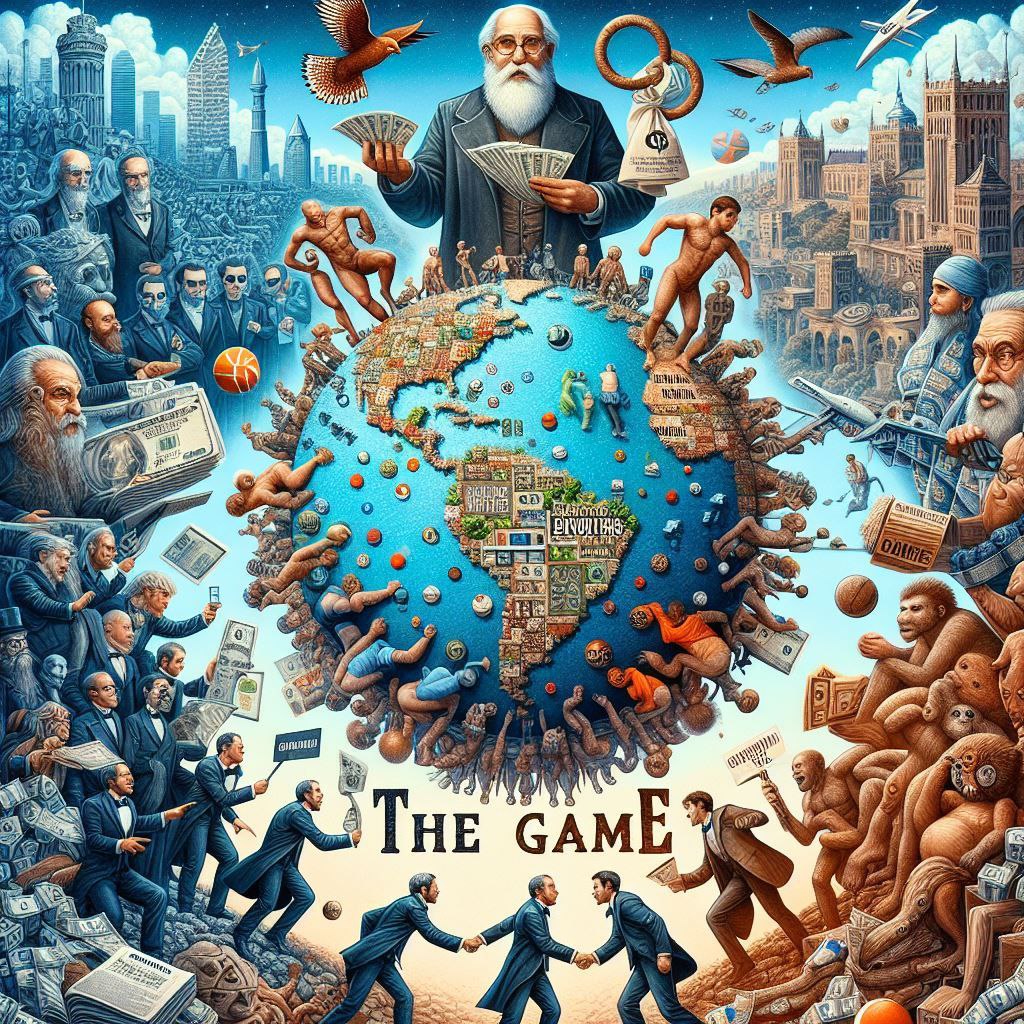
The world, in general and from an evolutionary perspective, is a playground that rewards certain things and punishes others. We open our eyes and find ourselves in this game of rewards and punishments, of winning or losing. That is why perfectionism, criticism, comparison, regret, envy, anger, hopelessness, depression, anxiety, and other parts emerge to help us navigate this game more effectively. I refer to this game of winning or losing as "The Game," a game created by nature and reinforced by opportunists. I incorporate elements and perspectives from the Internal Family Systems (IFS) model in my weblog posts to convey my message. I hope you find it helpful and share it with your loved ones and friends.
Self-criticism arises because individuals either lack a correct understanding of the rules governing The Game or are meant to engage in self-criticism as a means of learning those rules. However, their fears may prevent them from embracing this learning process. Some parts of them find the harsh and challenging nature of The Game unpleasant, leading them to resist engaging in a game filled with judgment, comparison, anxiety, depression, and suffering. As a result, they resist the desire of the critic to learn more and participate further in The Game. The part that experiences depression seeks to avoid playing The Game altogether due to despair, while the suicidal part naturally dislikes The Game entirely.
Many people seek counseling to understand the rules of The Game. Others lose hope of winning and wish to end The Game, viewing life as synonymous with The Game and seeking to end their lives as a means of escape. This perspective often leads to thoughts of suicide. However, some individuals come to realize that they have been entrapped by the demands of the materialistic world and nature, and they no longer wish to play The Game. This realization marks the beginning of their true life, as they seek a way to exit The Game and embrace a new existence.
So, what should we do? Does exiting The Game mean relinquishing learning, success, growth, and perfection? Not at all. We can continue our lives outside The Game, pursuing what we genuinely love and enjoy. For example, moving towards perfection takes various forms, and perfectionism represents just one path towards growth and perfection. The problem lies not in concepts such as flourishing, growth, and perfection, which are intrinsic to human nature, but in how they are perceived and pursued. Perfectionism and success strategies are often peddled by some of The Game players who recognize only superficial needs and sell fake and unrealistic solutions solely for profit, they are playing the Game at its best. Instead of acknowledging that perfection is achieved over time and through multiple attempts, they caution against making mistakes in the present, leading to a state of paralysis and perpetuating perfectionism without progress. Such an approach wastes energy. Perfectionism only holds meaning within the structure of The Game and competition. If one completely exits The Game, it becomes meaningless and empty.
As long as a significant portion of your energy is consumed by emotions and competitions related to The Game, you will lack the necessary energy to focus on what you truly love and move towards personal growth and perfection. Consequently, you won't be truly living. It is important to remember that living differs from playing The Game. In living, you can still engage in playfulness but not for the sake of The Game itself.
Lies and deception of some players of The Game start when they express beliefs they may not genuinely hold but that serve their personal interests or align with what sells well in the Game. Contradictions can be observed in their words and actions. Don’t believe in what advertisers of the Game are saying, they are lost in The Game themselves.
Next Post (Post 2) : The Game: Your task is not to seek for love



